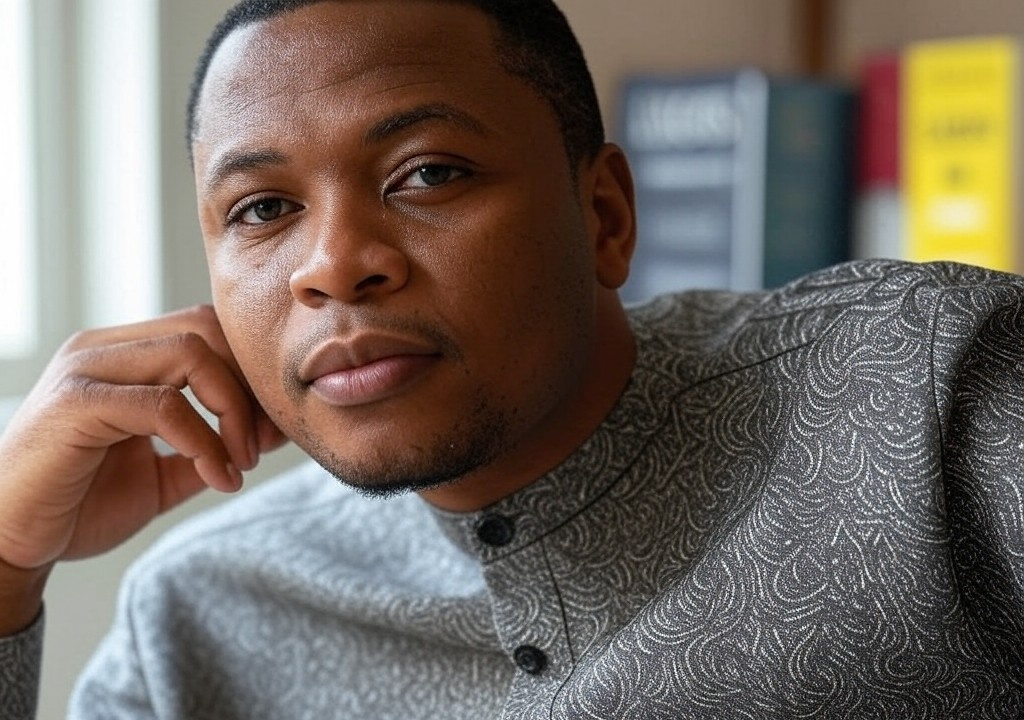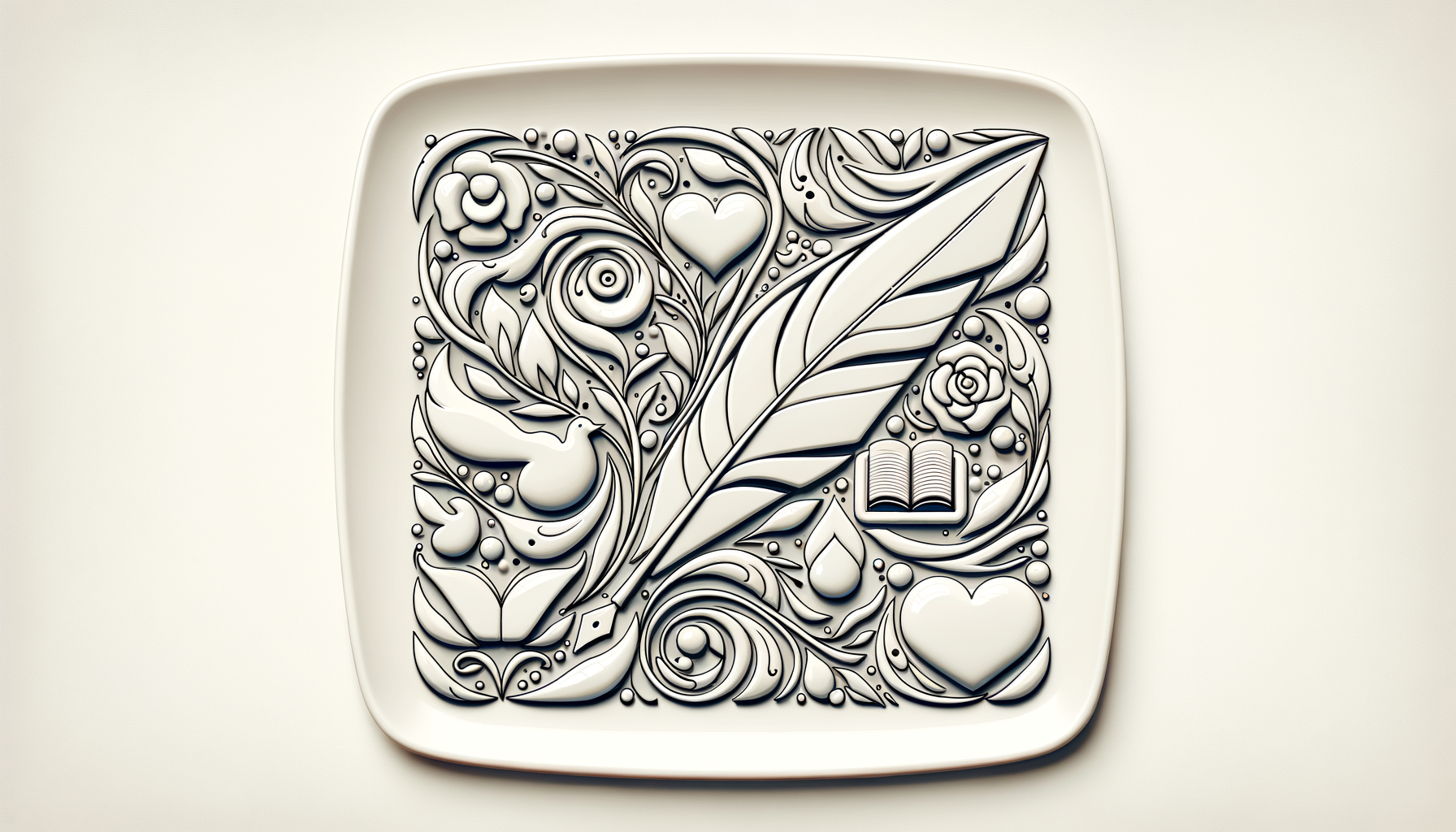They say that when you fall in love, you just know. I always thought that was a cliché people threw around to justify impulsive decisions—like getting married in Vegas or naming your dog “Beyoncé.” But then, it happened to me. No, not with a person (although that’s a story for another day), but with a passion so defining it’s become a part of who I am today: writing. Falling in love with writing wasn’t immediate. It was messy, thrilling, confusing—kind of like trying to decode someone’s texting habits in early-stage dating.
Let’s rewind.
First Dates with Writing
Growing up in Lagos, we didn’t talk about “passions” like they do on talk shows. Passion was reserved for things like mango-season cravings or football matches where the neighbors yelled so loudly, you felt the street shake. But stories? Stories were everywhere. My grandmother told ones that made you forget you were sitting under the punishing Nigerian sun, her voice shaping the air into mystical lands and wise animals. At school, we would cram folktales into our heads for exams, but I remember lingering on them longer than my classmates, scribbling down endings I imagined were better. My first kiss with storytelling, it seems, came when I believed I could rewrite fate—or at least an unsatisfying ending.
But things changed when we moved to Brooklyn. I was eight. English wasn’t my strongest suit, and kids in my classroom talked faster than New York rush hour. Even though I felt like an outsider, I knew I wanted to fit in. So, I turned to words—trying to mimic the witty one-liners I’d hear in hallways or on “Fresh Prince” reruns. Writing became my safest space, a way to process everything: the culture shock, the way accents stuck to you like damp clothes, and the feeling of being homesick for two places at the same time.
Somewhere in that Brooklyn haze, I stopped writing for others and started writing for myself. In my journal, I could grapple with everything from crushes (shoutout to my unrequited love for the girl two rows over in chemistry class) to the unique frustration of having four siblings hijack your personal space at all times. Words—written or spoken—became how I navigated both heartbreak and my grandiose teenage dreams of “making it.”
Falling Head Over Heels: How Writing Became More Than a Hobby
You know that one friend who says, “I’m not looking for anything serious,” and then six months later is planning their wedding? That was me and writing. In my early twenties, when I was teaching literature at a high school in Queens, nurturing other people’s creative sparks provoked the question I’d been dancing around: “What about you, Malik? Don’t you have a story burning inside you?”
To anyone else, the answer might’ve seemed obvious—after all, I was quoting Achebe like Bible verses and re-reading Baldwin when I couldn’t sleep. But to me, committing to writing felt a lot like staring down a first date with “potential”: nerve-wracking and entirely too vulnerable. Still, I dove in, MFA program and all.
Writing fiction felt electric. I got to braid the rich sounds and colors of Lagos with the gritty, kinetic energy of Brooklyn. Characters built themselves from fragments of memory—my dad’s determination in carving a living for us, my neighbors’ banter on Mount Prospect Avenue, the music that wove through it all. Writing, suddenly, wasn’t just a passion I had; it was a lens through which I understood myself.
The Breakup Stage: Wrestling with Imposter Syndrome
Sound romantic so far? Don’t worry, you know there’s always drama. Falling in love with your passion also means confronting doubts—big, hairy ones. The kind that sit in your chest when you read your first draft and think, “Wow, this is terrible,” and again when you hit “submit” on writing applications that don’t get responses. Imposter syndrome? Oh, we were in a full-on situationship.
I remember the first time I finished a story I felt proud enough to share. I convinced myself everyone else in the workshop room was literary royalty, while I was just some guy rambling about diaspora identity, jazz, and jollof rice. And yet, the moment I heard someone say, “That line stayed with me,” everything clicked. Doing something passionately doesn’t mean you always feel good about it—but it does mean showing up despite the uncertainty.
Lessons from the Love Affair
Everyone approaches passion differently, but here’s what I’ve learned from my love story with writing:
- You don’t have to be perfect—you just have to be consistent. Kind of like cooking for someone you love. Sometimes it’s perfect suya, sometimes the pepper is way off. Either way, you showed up in the kitchen, and that says something.
- Find your people and hold them close. Writing, like relationships, thrives when you have a feedback loop of supportive (and honest) voices. Whether it’s friends, mentors, or that aunt who insists on telling your stories at every family gathering, lean into the ones who “get” you.
- Remember why you started. Passions can evolve, get rocky, or become work—but there’s always a reason you fell in love with them in the first place. Don’t lose it.
Still in Love, Still Learning
I write now because it reminds me of who I am and who I want to become. It’s my way of making sense of the world, connecting not just with others but with every version of me—past and present. Some days, writing feels like that shiny honeymoon phase: effortless, fun, full of discoveries. Other times, it feels like putting together IKEA furniture—frustrating, unnecessarily complicated, but worth it in the end. Yet through it all, it remains my anchor.
So, whether you’re flirting with the idea of pursuing something new or reigniting an old flame with a dormant passion, here’s my advice: treat your passion like you’d treat someone you love deeply and imperfectly. Show up for it, laugh with it, forgive it when it’s messy, and never stop being curious about where it can take you.
Because when you fall in love with the right thing—whether it’s writing, painting, or baking weirdly elaborate cakes—you’ll know. You just will.




















